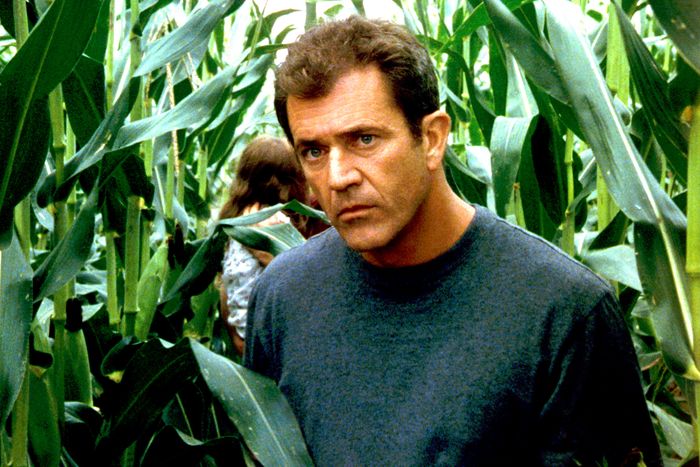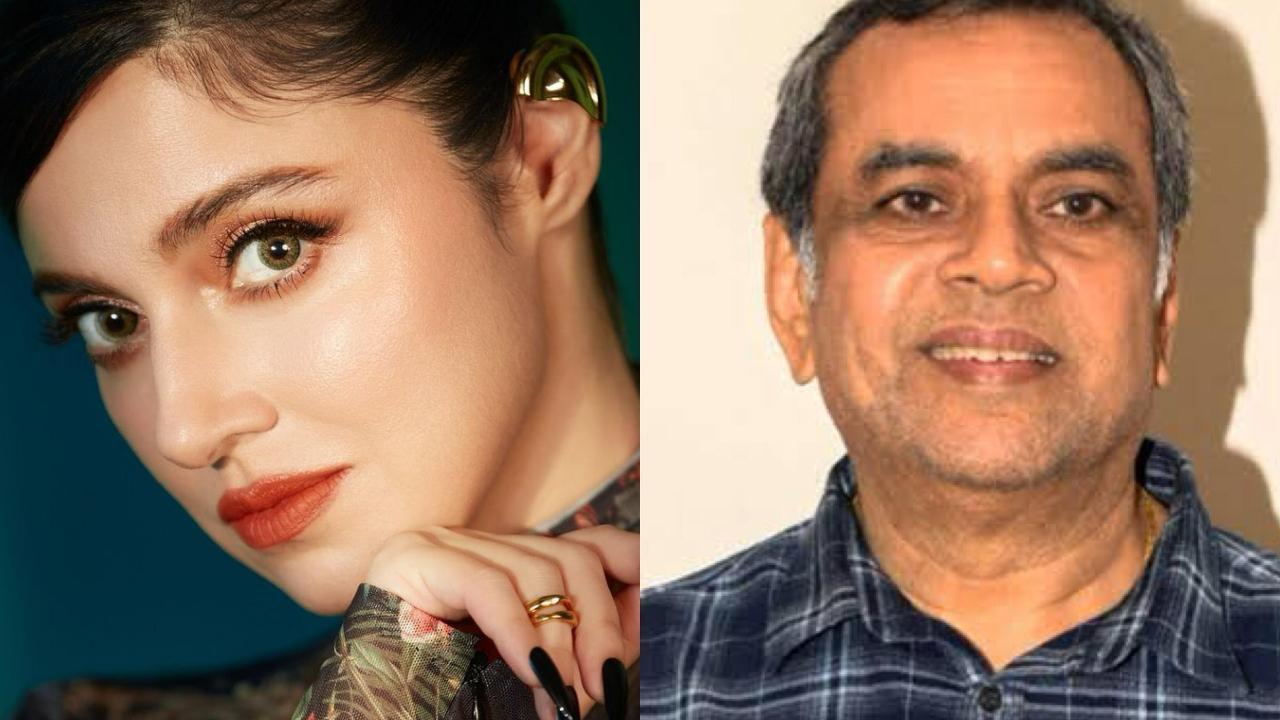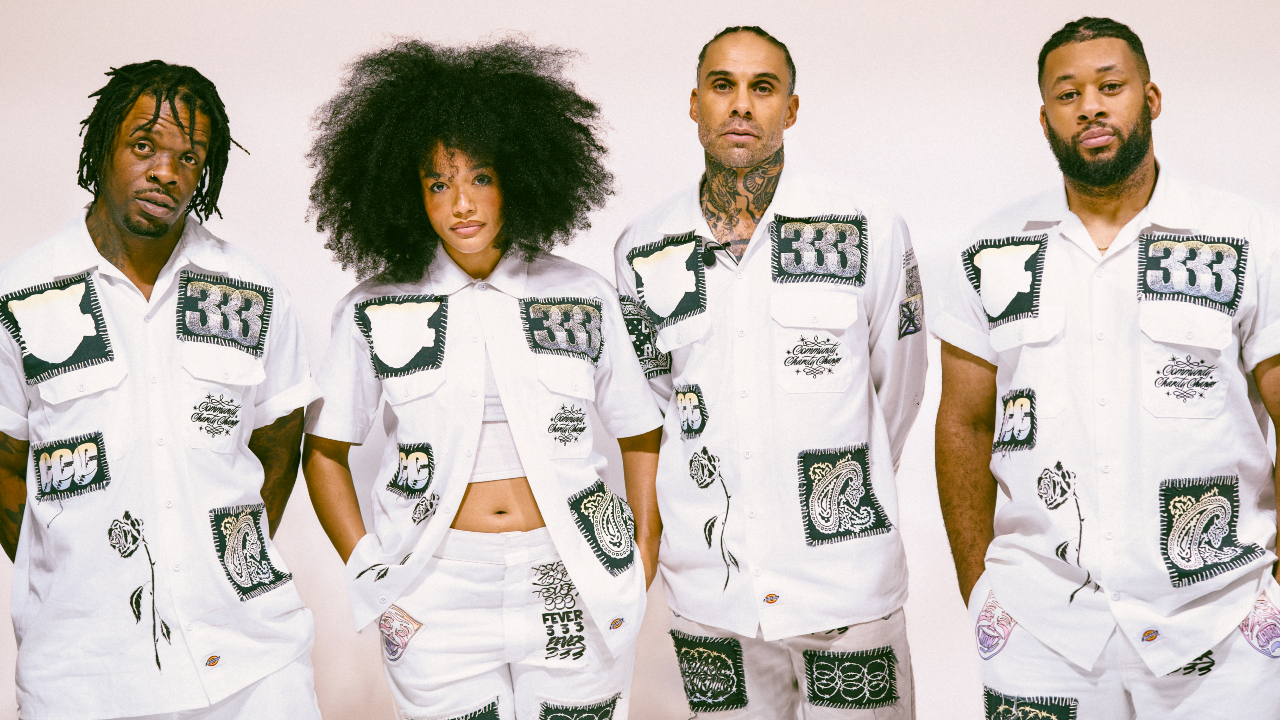Presented by Every Wednesday in August, Vulture will choose a film to watch with readers as part of our Wednesday Night Movie Club. This week’s selection comes from Vulture critic Nicholas Quah, who will begin his screening of Signs on Wednesday, August 6, at 7 p.m.
ET. Head to Vulture’s Twitter to catch the live commentary. Is it lame to still get unabashedly excited for a new M.

Night Shyamalan flick? Sure can seem like it. At some point over the past 20 years, it became outré ever to have fallen head over heels for the films, particularly the early ones, by the director once considered a wunderkind successor to Spielberg. Perhaps it was the erroneous impression that all Shyamalan movies are about the twist.
( The Sixth Sense ’s legacy continues to loom large.) Or maybe it was his earnest sensibilities, which often tip into maudlin? Or was it possibly his penchant to cameo in his works, suggesting a filmmaker who drank a little too much of his own Kool-Aid? Most likely, it was that he directed two absolute bombs in quick succession — After Earth and the live-action Avatar: The Last Airbender adaptation — both of which played to his worst tendencies and validated his detractors’ critiques. However we got here, Shyamalan’s Spielbergian standing is long lost, even as the director, now 54, has been waging a steady comeback since 2015’s The Visit .
Trap , his latest release, is great dumb fun, but it probably won’t bag him his first Oscar nod in 24 years. Generally speaking, though, I’m happy to stump for any Shyamalan flick, good or bad. Yes, he has made stuff even I can’t begin to defend — Airbender in particular — but listen, every prolific director has a few true stinkers.
On an average day, you wouldn’t have to do much to get me to talk about how The Happening is actually an interesting take on an ecohorror movie, or how we should forgive the guy for casting himself as a writer with a world-important destiny in Lady in the Water . Dude was clearly working some stuff out. Let him freak! But Signs isn’t one of the bad ones, and of his oeuvre, it remains a personal favorite.
It was his third release, hitting theaters in 2002, but it strikes me as the first true Shyamalan film in that it shamelessly displays the depths of the director’s treacly sensibilities, which had previously been obscured by The Sixth Sense ’s prestige sheen and Unbreakable ’s shadowy portentousness. The movie smashes a good ol’ alien-invasion premise together with the story of a pastor, Graham (Mel Gibson, pre-meltdown), who loses his faith after his wife dies in a random accident. At the outset of the movie, we find Graham a husk of a person who’s barely caring for his kids, Morgan and Bo (a very young Rory Culkin and Abigail Breslin), and takes out his anger on his brother, Merrill (Joaquin Phoenix), a washed-up baseball player who moves in to support the grieving Graham.
Crop circles begin to pop up around the world and on the family’s farm. As alien sightings and apocalyptic news reports make danger feel increasingly imminent, Graham’s loss of faith becomes the movie’s core battleground, and the existential suspense helps you consider, How would you process the end of the world? The soul of the film arrives on a sofa, with a scene in which Merrill asks Graham for comfort as they watch news coverage of glowing lights appearing in the skies. Graham responds with a monologue breaking humanity down into two types of people: those who believe in miracles and those who see only coincidences.
“What you have to ask yourself is, What kind of person are you?” he says. “Or look at the question this way. Is it possible that there are no coincidences?” At first, Graham’s counsel seems to comfort Merrill, giving him a kind of agency — only for Graham to break the spell with his own bitterness.
“There is no one watching us, Merrill,” he says. “We are all alone.” But of course, our protagonist needs room to evolve.
So Signs culminates in the restoration of Graham’s faith thanks to a twist, insofar as you can consider it a twist. With an alien threatening to kill Morgan in the living room, a series of seemingly disparate details help the family survive the invasion. Morgan’s asthma prevents the alien’s toxic gas (?) from killing (?) him.
When the extraterrestrial’s weakness is revealed to be water, Bo’s errant glasses of water around the house become lethal weapons as Merrill uses his old baseball bat to shatter them in the creature’s direction. What seemed like coincidences were aspects of fate coalescing into a miracle. Yes, it’s tidy.
It’s a little simple, maybe even silly, to see the themes of the movie all laid out so clearly, which is a major Shyamalan tendency. And yes, you don’t have to poke around all that much to break the machine of the film. The aliens, which are deathly allergic to water, come to Earth, which is full of water, to harvest humans, which are 70 percent water? If the proof of miracles lies in a web of fate that kept the Hesses safe, what do we make of the rest of the world, said to have suffered mass casualties in the invasion? But also, why overthink it? When James Newton Howard’s score swells in the climax, that shit always hits .
If there were ever a filmmaker whose work matches the philosophy of Tenet when Clémence Poésy goes, “Don’t try to understand it, feel it,” it’s Shyamalan. Just go with it, man. Shyamalan has talked about Signs as being the most joyous movie he’s ever made.
And you can see it. The Sixth Sense and Unbreakable are heavy and brooding. By contrast, Signs is so much springier on its feet.
The humor flows more freely — there’s something inherently comedic about the prospect of a lapsed pastor whose faithlessness initially prevents him from grokking the alien invasion before his eyes. And the golden hues of rural Bucks County, Pennsylvania, make the world of the film more of a pleasure to be around. In the lead-up to Trap , Shyamalan drew an overt connection between the two films, noting how he had a damn good time working on both scripts despite their subject matter.
He also talked about how Trap was the fastest he has ever written a script, behind Signs . (Honestly, you can sorta tell.) Thing is, all the qualities that people knock Shyamalan for — the oversentimentality, the twists, the impulse to spell everything out — are the same qualities that continue to draw me to his films.
That’s because I’ve accepted the M. Night Shyamalan experience for what it is. An uncharitable soul could regard his output as elevated B-movies with ingenious elevator pitches, and this wouldn’t necessarily be wrong.
But they are all wonderfully emotional and personal movies made on a popcorn-blockbuster scale. He’s constantly exploring the same themes: parenthood, losing loved ones, feeling estranged from them, coping with a brutal universe. In this pursuit, he paints with big feelings.
His twists serve an emotional sense. His impulse to spell everything out makes sure the whole thing slaps you in the face. All of these components produce true idiosyncrasy: A Shyamalan film is so specific to him.
This remains true as Shyamalan continues his comeback phase. His post- Airbender films — The Visit, Split, Glass , Old , and Knock at the Cabin — may seem notably tighter, darker, and more muted with their feelings, but if you look for it, all the hallmark traits of the Shyamalan experience are still there. Trap is a perfect example.
The pitch for the movie is basically “What if The Silence of the Lambs happened at a Taylor Swift concert?” But in its soul, it’s a movie about an embarrassing dad made by an embarrassing dad. And as simple and silly as it can get, it’s also an utter joy to watch. Just like Signs .
.



















